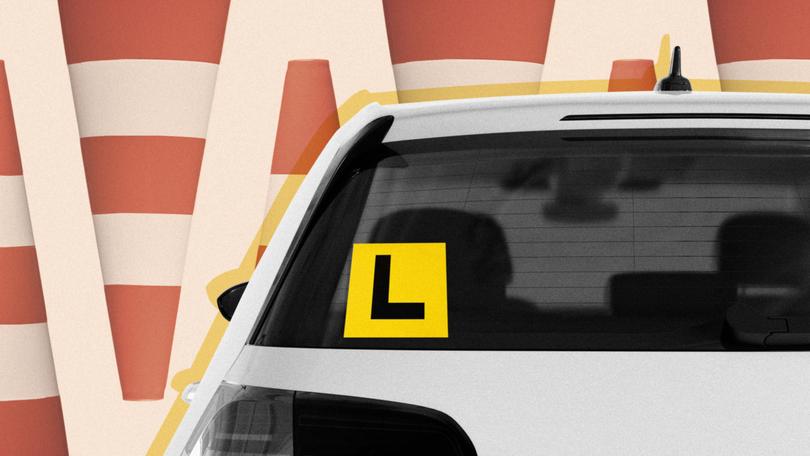JENI O’DOWD: Comprehensive overhaul of driver training programs needed to stop kids dying on roads
JENI O’DOWD: Every parent knows the mix of pride and anxiety as they watch their child drive off independently for the first time. But are they really ready, even after all the training?

It took my daughter three tries to get her P-plates. The first attempt was doomed from the start when she hit a pole while leaving the car park.
She blamed her dad for parking at a wonky angle. Instant fail.
The second time, she hit the curb while reverse parking. Another instant fail. But on the third try, she nailed it and finally earned her licence to freedom.
Sign up to The Nightly's newsletters.
Get the first look at the digital newspaper, curated daily stories and breaking headlines delivered to your inbox.
By continuing you agree to our Terms and Privacy Policy.Every parent knows the mix of pride and anxiety as they watch their child drive off independently for the first time.
Are they really ready, even after all the training? In NSW and Victoria, learners must complete 120 hours of driving before taking the P-plate test. While extra hours can be earned through safety courses or professional driving lessons, mum or dad mostly does the teaching.
Yet lawmakers overlook one crucial aspect — there is no enforced training on the dangers of speeding, despite it being Australia’s leading cause of car crashes.
Young drivers, although a small percentage of the driving population, are tragically overrepresented in road crashes and fatalities across the country.
Last year, although the highest proportion of road deaths was recorded in the 40–64 age group, the 17–25 age group came a close second — 22 per cent of total driver deaths in Australia.
And many young drivers are travelling with young passengers as well. We have all seen the sobering headlines on the news when one of these crashes happens. More young lives lost before they have even started.
Road safety expert Dr Oleksandra Molloy, a senior lecturer from UNSW Canberra, was the lead researcher in a recent study about speed management in young drivers.
And, what the study found should not be ignored.
Dr Molloy and her colleagues found cognitive-based training with feedback effective in improving young drivers’ speed compliance.
This training incorporated three key elements: performance feedback, which assesses the degree of speed limit violation; financial ramifications of speeding; and safety implications associated with exceeding speed limits.
They recommended overhauling training for young drivers, incorporating it into the training to get a learner’s permit and a P-plate. However, they said it could be beneficial to start preparing school-aged children for safe driving habits.
This would be done through road safety talks and a driving simulator, where students could practice driving in a safe environment and get feedback on their performance.
“Mandatory training should be introduced to support young drivers throughout Australia in obtaining their full licence … to ensure that they learn important cognitive skills necessary for driving, not just how to control the car,” Dr Molloy told The Nightly.
She says young novice drivers in the first year of solo driving are at a greater risk of being involved in a crash than at any other time in their driving life.
Dr Molloy argues that apart from optional training, a theoretical component, and practice by driving, there is no mandatory training for young drivers at each stage as they progress until they have a full licence.
“If we want to save the lives of young people, we have to do more. Training can help solve this problem,” she said.
While driving is second nature to more experienced drivers, it is a complex and dynamic activity requiring both psychomotor (vehicle control) and cognitive skills (hazard perception, attention, situation awareness, decision-making, risk management).
“Learners have an inflated level of confidence in their driving skills and often under-estimate the complexity of the driving task,” Dr Molloy said.
And, the risk of accidents increases significantly when young drivers are overconfident in their skills but lack the necessary cognitive abilities to assess and respond to real-world driving hazards.
It seems the answer is just sitting there: a comprehensive overhaul of driver education programs, incorporating mandatory training modules focused on cognitive skills, hazard perception, and the dangers of speeding.
By making these changes, we can equip young drivers with the necessary tools to navigate the complexities of driving and significantly reduce the risk of road accidents.
While the joy of seeing our children gain independence through driving is immense, it comes with the weighty responsibility of ensuring their safety.
